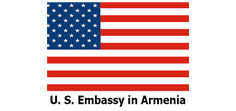Newly elected president Armen Sargsyan in an interview with “Azatutyun” radio station commented on numerous ongoing protests in various towns of Armenia. The protests were against the third President of Armenia and the Leader of the Republican Party Serzh Sargsyan who had broken his promise about not claiming to become prime minister after passing to parliamentary governance and took over the government for the third time. In his interview, President Armen Sargsyan emphasized that “during free expression of will, violence, illegal acts, and restriction of others’ rights must be excluded.”
Let us see how peaceful assembly is defined in international documents. Thus, the OSCE / ODIHR and the Venice Commission guidelines on peaceful assemblies defined them as an intentional and temporary presence of individuals for common purposes, which can be manifested through public meetings, mass actions, flash mobs, demonstrations, sit-ins, marches, pickets and other ways.
The gathering is considered to be peaceful if the organizers have declared peaceful intentions and it is carried out in a non-violent manner. The Guidelines also clarify that the “peaceful assembly” may include acts that are offensive or unpleasant, or even temporarily prevent, or limit the actions of others. The use of violent force by a small number of participants in the assembly should not automatically lead to qualify the assembly as non-peaceful, and absolutely passive resistance should be qualified as a means of a peaceful gathering. Passive resistance or civil disobedience is considered the oppression of the authorities by non-violent means through no cooperation, disobedience to laws, and other means.
According to the Guidelines, when considering the need for any restriction on assemblies, it should be taken into account that the use of public spaces for gatherings is as legitimate as their use for more routine purposes, such as commercial activity, car traffic, or pedestrian traffic. This principle is clearly defined by the European Court of Human Rights. According to the verdicts issued by Balgic against Turkey (2007) and Ashughyan against Armenia (2008), the Court stated that any gathering in the public place could have caused some disturbances in everyday life, including traffic disturbances. Hence, if demonstrators do not resort to violence, it is important that public authorities show a degree of tolerance towards peaceful assemblies.
Photo by hetq.am

 FACTOMETER
FACTOMETER












